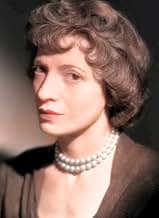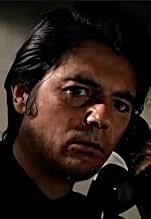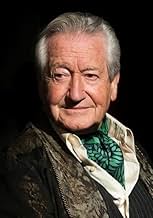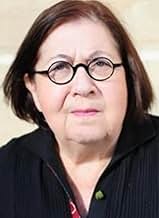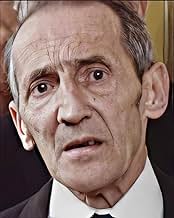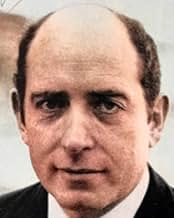Als Frankreich sich dem Ende des ersten Indochina-Krieges nähert, gerät ein aufgeschlossener Teenager zwischen dem rebellischen Drang, die Liebe zu entdecken, und der allgegenwärtigen, fast ... Alles lesenAls Frankreich sich dem Ende des ersten Indochina-Krieges nähert, gerät ein aufgeschlossener Teenager zwischen dem rebellischen Drang, die Liebe zu entdecken, und der allgegenwärtigen, fast dominierenden Zuneigung seiner geliebten Mutter hin und her.Als Frankreich sich dem Ende des ersten Indochina-Krieges nähert, gerät ein aufgeschlossener Teenager zwischen dem rebellischen Drang, die Liebe zu entdecken, und der allgegenwärtigen, fast dominierenden Zuneigung seiner geliebten Mutter hin und her.
- Für 1 Oscar nominiert
- 2 Gewinne & 3 Nominierungen insgesamt
- Clara Chevalier
- (as Léa Massari)
- Laurent Chevalier
- (as Benoit Ferreux)
- Charles Chevalier
- (as Daniel Gelin)
- Father Henri
- (as Michel Lonsdale)
Empfohlene Bewertungen
After 35 years, "Murmur of the Heart" still rings truer and closer to home than most contemporary comedies (and even dramas) revolving around the "coming of age" and "sexual awakening" in a young teen. It's also more daring and liberal in its construction of key family members being part of that very natural formation of sexual DNA and identity. They discuss philosophy. They discuss suicide. They discuss "The Story of O". Laurent and his 2 older brothers consort in disrespectfully petty behaviour contrary to what their upbringing holds sacred. Laurent's a top student, an intellectual that sees the world around him as a playground. It's a smalltime superiority complex as he defines his sensitive sensibilities with discernment beyond his years and a haughty disregard for divergent thoughts with a self-important air.
Revolving primarily about Laurent and his mother, Clara ("L' avventura's" Lea Massari), it's a refreshing look at a parental relationship based around adoration and fondness (coming under constant mocking by his brothers) than the contemporaneous and contemptuous notion of disdain and rebelliousness surrounding the authority figures and generational gaps. It underlines the idiom of a mother being her son's first love. In its essence, it encapsulates many complicated mother-child relationships including the emotional Oedipal issues that do crop up. And through that, a lovely parallelism is wrought with its interpretation of a woman who wants to be a girl and a boy who wants to be a man.
Conforming to an almost sitcom style, its self-dependent, autonomous scenes and situations just about start to border on farcical proportions. Its characters place sex and carnality high up on a pedestal, while Malle condescendingly films it as something so pedestrian and run-of-the-mill, not worth the hype and excitement over it anyway. He makes the patient, inevitable buildup to a key sex scene that had caused controversy when it was first released, to seem more natural and accepting than he does the sexual encounters that actually do seem the norm in society.
Young Laurent Chevalier, his mother & his roguish elder brothers break every taboo known to small-town 1950s Dijon: underage drinking, underage sex, blasphemy, incest, petty theft, adultery, art forgery, whoremongering, drunk driving... What more can you ask? Malle treats their escapades with such lighthearted sympathy & wit you can't help liking them.
Before I first saw Soufflé au Coeur, I read a blurb for it in the monthly listings of my local repertory cinema that ran something like this (I quote from memory): "This film does a lot to restore the French to their former reputation for sophisticated naughtiness." I can't sum it up any better than that.
Wusstest du schon
- WissenswertesAccording to Pauline Kael, "what makes this movie so different from other movies about bourgeois life is that the director, Louis Malle, sees not only the prudent, punctilious surface but the volatile and slovenly life underneath. He looks at this bourgeois bestiary and sees it as funny and appalling and also - surprisingly - hardy and happy. It is perhaps the first time on film that anyone has shown us the bourgeoisie enjoying its privileges." Also for Kael, "it's a movie not about how one has been scarred but about how one was formed."
- PatzerDuring the chess match, the boys are sitting on what should be the spectator sides of the board, rather than the player sides. It appears that the chessmen were set up along the files rather than the ranks. (The lower right hand corner squares are black, when they should be white.)
- Zitate
Clara Chevalier: Why not take things as they come?
Laurent Chevalier: Meaning?
Clara Chevalier: I don't know. Begin at the beginning. Wait to experience things yourself. And there's plenty of time. I'm not rushing you. Everyone has to discover love for himself. Lots of things can happen between a man and a woman. Better to find out for yourself, not from a book.
- VerbindungenFeatured in Arena: My Dinner with Louis (1984)
Top-Auswahl
- How long is Murmur of the Heart?Powered by Alexa
Details
- Erscheinungsdatum
- Herkunftsländer
- Offizieller Standort
- Sprachen
- Auch bekannt als
- Murmur of the Heart
- Drehorte
- Passage de la Geôle, Versailles, Yvelines, Frankreich(opening scene, as a street in Dijon)
- Produktionsfirmen
- Weitere beteiligte Unternehmen bei IMDbPro anzeigen
Box Office
- Bruttoertrag in den USA und Kanada
- 1.160.784 $
- Weltweiter Bruttoertrag
- 1.160.784 $

![Bande-annonce [OV]](https://m.media-amazon.com/images/M/MV5BMzM3NTUwMDAtYmQxZS00ZTAzLWJkYzktOWIyZTI1OTBjYjRiXkEyXkFqcGdeQXRyYW5zY29kZS13b3JrZmxvdw@@._V1_QL75_UX500_CR0)

